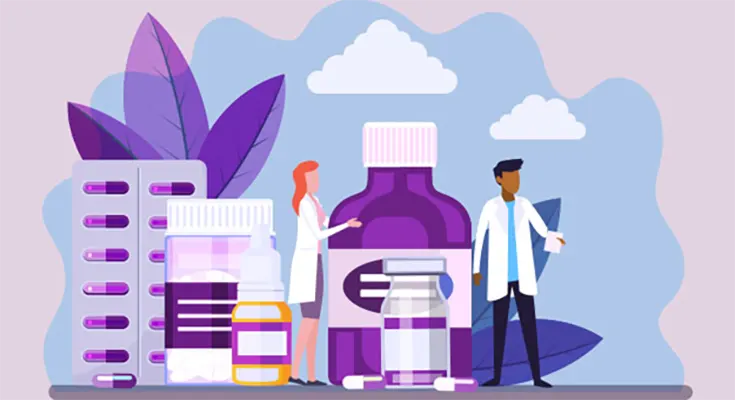The pharmacy system in Indonesia is regulated by several key bodies that work together to ensure the safe, effective, and ethical practice of pharmacy. These regulatory bodies include the Ministry of Health (Kementerian Kesehatan), the Indonesian Food and Drug Authority (Badan Pengawas Obat dan Makanan, BPOM), and professional organizations such as the Indonesian Pharmacists Association (Persatuan Ahli Farmasi Indonesia, PAFI). This article explores the roles and responsibilities of these regulatory bodies, their contributions to the pharmacy system, and the challenges they face in maintaining high standards of pharmaceutical practice. Visit pafikotasungailiat.org
Ministry of Health (Kementerian Kesehatan)
Overview and Functions
The Ministry of Health is the primary governmental authority responsible for overseeing the healthcare system in Indonesia, including the regulation of pharmacy practice. Its key functions include:
- Policy Development: The Ministry develops and implements health policies that govern the practice of pharmacy, ensuring that these policies align with national health goals.
- Licensing and Certification: It issues licenses to pharmacists and pharmacies, ensuring they meet the necessary qualifications and standards.
- Regulation and Compliance: The Ministry monitors and enforces regulations related to the practice of pharmacy, including the distribution, sale, and use of medications.
- Public Health Initiatives: It implements programs aimed at improving public health, including initiatives on medication safety and rational drug use.
Impact on Pharmacy Practice
The Ministry of Health’s regulations and policies significantly impact the practice of pharmacy by setting the standards for professional conduct, education, and pharmaceutical care. These standards ensure that pharmacists provide safe and effective services to the public.
Indonesian Food and Drug Authority (BPOM)
Overview and Functions
BPOM is the primary regulatory body responsible for ensuring the safety, efficacy, and quality of drugs and other health products in Indonesia. Its key functions include:
- Drug Approval: BPOM evaluates and approves new drugs before they can be marketed in Indonesia, ensuring they meet safety and efficacy standards.
- Post-Market Surveillance: The agency monitors the safety of drugs already on the market, conducting inspections and taking action against non-compliance.
- Quality Control: BPOM ensures that pharmaceutical products meet national standards for quality and safety through rigorous testing and evaluation.
Drug Registration and Approval Process
The drug registration and approval process is a critical function of BPOM. This process involves:
- Submission of Application: Pharmaceutical companies submit detailed applications, including clinical trial data, manufacturing processes, and quality control measures.
- Scientific Review: BPOM conducts a thorough scientific review of the application, evaluating the safety and efficacy data.
- Inspection and Testing: The agency inspects manufacturing facilities and tests product samples to ensure compliance with Good Manufacturing Practices (GMP).
Post-Market Surveillance
BPOM’s post-market surveillance activities include collecting and analyzing data on adverse drug reactions, conducting periodic inspections of manufacturing facilities, and testing drug samples for quality assurance. These activities ensure the continued safety and efficacy of drugs in the market.
Indonesian Pharmacists Association (PAFI)
Overview and Functions
PAFI is a professional organization that supports the pharmacy profession in Indonesia. Its key functions include:
- Professional Development: PAFI provides continuing education programs to help pharmacists stay current with advancements in pharmaceutical sciences and clinical practice.
- Advocacy: The organization advocates for the interests of pharmacists at the national level, influencing policies and regulations that impact the profession.
- Standards Development: PAFI contributes to the development of practice standards, ensuring that pharmacists adhere to high standards of professional conduct and pharmaceutical care.
Role in Continuing Education
PAFI plays a crucial role in the continuing education of pharmacists. Licensed pharmacists in Indonesia are required to complete continuing education credits to maintain their licensure. PAFI offers various programs and courses to meet this requirement, helping pharmacists stay updated with the latest knowledge and skills.
National Accreditation Board for Higher Education (BAN-PT)
Overview and Functions
BAN-PT is responsible for accrediting higher education institutions and programs in Indonesia, including pharmacy schools. Its key functions include:
- Accreditation: BAN-PT evaluates and accredits pharmacy programs to ensure they meet national educational standards.
- Quality Assurance: The board conducts periodic reviews of accredited programs to ensure continued compliance with standards.
- Improvement Initiatives: BAN-PT works with institutions to promote continuous improvement in the quality of pharmacy education.
Impact on Pharmacy Education
The accreditation process ensures that pharmacy graduates have received a high-quality education that prepares them for professional practice. This is essential for maintaining the competence and credibility of the pharmacy profession in Indonesia.
Professional Standards and Guidelines
Good Pharmacy Practice (GPP)
Good Pharmacy Practice (GPP) guidelines, established by the Ministry of Health and supported by PAFI, ensure that pharmacists provide high-quality services. GPP encompasses various aspects, including:
- Patient Care: Providing accurate information about medications, ensuring appropriate use, and monitoring patient outcomes.
- Medication Management: Ensuring the safe and effective use of medications through proper storage, dispensing, and administration.
- Professional Conduct: Adhering to ethical principles, maintaining patient confidentiality, and engaging in continuous professional development.
Good Manufacturing Practices (GMP)
GMP standards, enforced by BPOM, ensure that pharmaceutical products are consistently produced and controlled according to quality standards. GMP covers various aspects of production, including personnel, facilities, equipment, materials, and production processes.
Challenges in the Regulatory Framework
Ensuring Compliance
Ensuring compliance with regulatory standards across the diverse and rapidly growing pharmaceutical industry is a significant challenge. Limited resources for inspections and enforcement can lead to gaps in compliance.
Counterfeit and Substandard Medications
The presence of counterfeit and substandard medications in the market remains a serious concern. Despite regulatory efforts, these products can still reach consumers, posing significant risks to public health.
Balancing Innovation and Regulation
Balancing the need for rigorous regulation with the encouragement of innovation is a complex task. Overly stringent regulations can stifle innovation, while insufficient regulation can compromise safety and efficacy.
Future Directions
Strengthening Regulatory Capacity
Enhancing the capacity of regulatory bodies like BPOM and the Ministry of Health is crucial for ensuring effective regulation. This includes increasing resources for inspections, investing in advanced technologies for monitoring, and enhancing the skills of regulatory personnel.
Leveraging Technology
Leveraging technology can improve the efficiency and effectiveness of regulatory processes. This includes implementing digital systems for drug registration, using data analytics for post-market surveillance, and employing blockchain technology to secure the pharmaceutical supply chain.
International Collaboration
Collaborating with international regulatory bodies can help Indonesia adopt global best practices and standards. This can also facilitate the exchange of information and resources, improving the overall regulatory framework.
Conclusion
The regulatory framework for the pharmacy system in Indonesia involves multiple key bodies, including the Ministry of Health, BPOM, PAFI, and BAN-PT. These organizations work together to ensure the safety, efficacy, and quality of pharmaceutical products and services. While significant progress has been made, challenges remain in ensuring compliance, combating counterfeit medications, and balancing innovation with regulation. By strengthening regulatory capacity, leveraging technology, and enhancing international collaboration, Indonesia can continue to improve its pharmacy regulatory framework, ensuring better health outcomes for its population.



